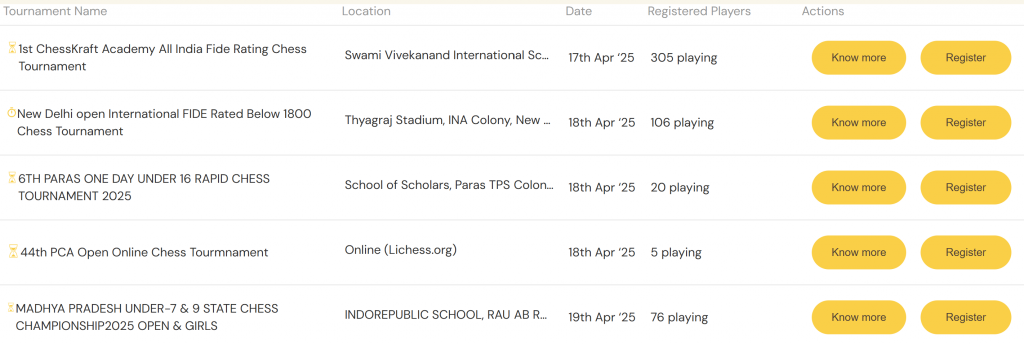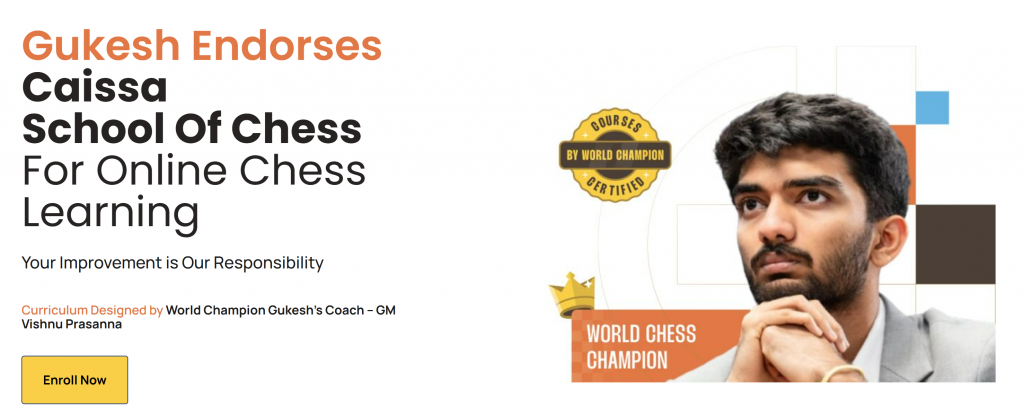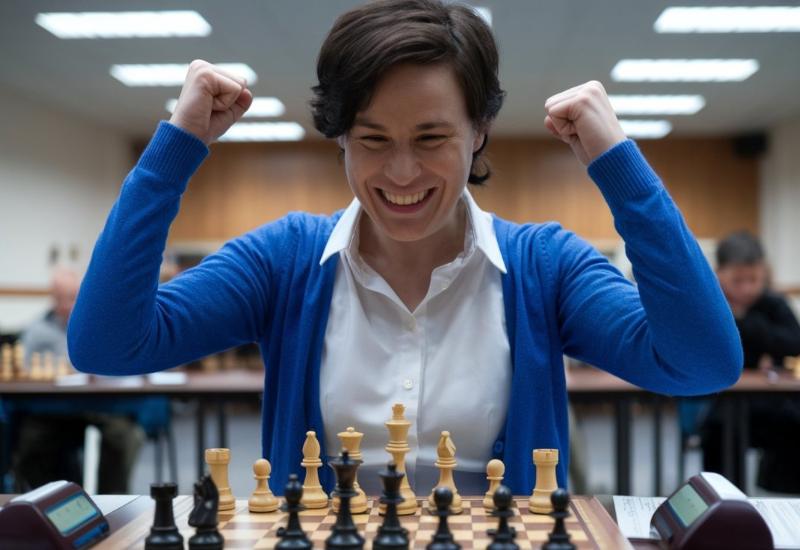Chess tournaments are an intense journey where strategy meets resilience. If you’re wondering how to win a chess tournament or prepare for one, it’s not just about playing the game – it’s about mastering preparation, mental endurance, and maintaining momentum.
Chess Tournament Preparation Strategies
Preparation is more than knowing openings. It’s about balancing study with mental readiness to step into any game confident and prepared.
1. Balancing Openings and Strategy
Knowing multiple openings is good, but it’s essential to avoid over-complicating your preparation. Stick to a few openings that you know well and can adapt based on your opponent’s strengths. For example, if you’re comfortable with a closed game, try mastering openings like the Ruy López or the London System. These can give you a stable position without risking too much.
2. Relaxed Yet Effective Preparation
Preparation isn’t just about rigorous study. Balance study time with activities that keep your mind fresh. Many players listen to music, take short walks, or practice meditation to stay focused yet relaxed. Preparation should feel like steady training, not a high-pressure situation.
3. Adapting Based on Opponent Strengths
In competitive chess, adapting to your opponent’s style is vital. If they’re defensive, consider aggressive strategies; if they’re aggressive, consider more controlled, defensive play. By studying your opponent’s previous games (if available), you can adjust your approach and catch them off guard.
Overcoming Mental Challenges To Prepare For A Chess Tournament
Tournament play isn’t just about physical moves; it’s a mental game. Keeping your focus and composure can set you apart.
1. Building Confidence and Composure
Confidence often fluctuates in tournaments. After a loss, it’s easy to feel deflated. Remind yourself that one loss doesn’t define the outcome. Practice keeping your body language positive, even if the match seems challenging – a calm appearance can have a psychological impact on your opponent.
2. Avoiding Negative Thoughts
Every player makes mistakes. The key is to avoid dwelling on past errors. If you made a blunder, acknowledge it, and move on. Dwelling only weakens your focus. Try a quick mental reset, like taking a few deep breaths, to shake off negativity.
3. Staying Focused in High-Pressure Situations
Thinking about how to win a chess tournament? During tournaments, pressure is inevitable. Build resilience by practicing with timed games, which train you to think quickly and efficiently. Remember, a calm and calculated approach under pressure can turn the game in your favor.
The Importance of Momentum in Winning A Chess Tournament

Momentum is a powerful force. When you’re on a roll, keep pushing; if you hit a setback, reset and refocus.
1. Maximizing Positive Momentum
Winning consecutive games creates a sense of control. Use this momentum to reinforce your confidence, but avoid overconfidence. Stick to your strategies and play with calculated risks.
2. Recovering from Setbacks
A loss can be disheartening, but resilience is key. Take a moment to assess what went wrong, but don’t obsess over it. Remember, each round is a new chance to get back on track.
3. Balancing Aggression and Caution
Adapting your playstyle is crucial. Avoid reckless moves during winning streaks, as overconfidence can lead to mistakes. Balance offensive tactics with cautious evaluation to maintain control across all rounds.
Analyzing Games and Opponents To Prepare For A Chess Tournament
Effective analysis sharpens your intuition and helps you predict moves, setting you up for strategic advantage.
1. Assessing Positions and Timing
Strong players have an intuitive sense of timing. Use tactics like sacrificing minor pieces for long-term gains when needed. Recognize positional advantages, like central control, which can pressurize opponents and help you achieve strategic control.
2. Checking and Double-Checking Variations
Never rush calculations. Ensure your analysis is thorough, especially in critical positions. Many games are lost to simple oversights, so double-check every variation, especially under time pressure.
3. Recognizing Opponent Strategies
Experienced players give away subtle hints. By studying their past moves, you can often predict their strategies. This insight can prepare you to counter their plans before they unfold, creating pressure on your opponent.
Effective Opening Strategies
Opening strategies set the stage. Using a mix of creative and sound openings can give you the edge.
1. Using Imaginative and Dynamic Approaches
Unconventional openings can disrupt your opponent’s preparation. Openings like the King’s Gambit or the Benko Gambit can put them on the defensive, forcing them to adapt to your play style rather than following their own.
2. Surprising Opponents with Unusual Variations
Keeping a few unconventional openings in your repertoire can be advantageous. When opponents expect standard moves, an unusual response can put them off-balance, giving you control from the start.
3. Adapting Openings for Advantage
While it’s tempting to stick to a favorite opening, adapt based on the opponent. Certain openings might align better against aggressive players, while others work well against a defensive style. Adjust as needed to gain that competitive edge.
Maintaining a Balanced Lifestyle
Winning a tournament isn’t just about what happens on the board. Balancing life outside chess is equally important.
1. Ensuring Adequate Rest
Tournaments require stamina. Plan rest days or short breaks to recharge mentally and physically. Studies show that well-rested players perform better, as fatigue can lead to careless mistakes.
2. Balancing Activity and Preparation
Moderate exercise, like yoga or jogging, helps reduce stress and improves focus. Physical activity stimulates brain function, so make time for it to keep your mind sharp.
3. Allowing Time for Relaxation
Tournament intensity can feel overwhelming. Incorporate relaxation techniques, such as deep breathing or meditation, to center yourself before each game. A calm mind leads to better decision-making on the board.
Embracing a Champion’s Mindset To Win a Chess Tournament

A champion’s mindset is more than ambition; it’s a mental toolkit for tackling intense competition and growth.
1. Understanding Psychological Aspects
Chess is deeply psychological. Recognize that nerves are normal, especially in critical moments. Train yourself to stay composed, even when a win seems close but isn’t guaranteed.
2. Trusting Instincts and Intuition
Strong intuition in chess is developed through consistent practice and experience. In challenging positions, trust your instincts. Often, the best moves are those that feel natural rather than over-calculated.
3. Harnessing Nerves as Fuel
Rather than seeing nerves as a hurdle, use them to enhance your performance. Nervous energy can heighten awareness and sharpen focus if managed well. Treat each game as an opportunity to test and build this skill.
Reflect, Plan, and Continue Improving
We believe that reflecting on each tournament experience is essential for growth. Analyzing your games, celebrating successes, and identifying areas for improvement are all part of the journey toward becoming a better player.
With live classes led by top grandmasters who have coached elite chess prodigies, peer-to-peer learning groups to practice and compete with players at similar skill levels, and supplementary classes that ensure everyone can progress together, Caissa provides a holistic approach to mastering the game. Plus, regular assignments, activities, and practice tournaments keep you engaged, helping you apply and refine what you’ve learned.

Are you ready to put these strategies to the test? With preparation, resilience, and a champion’s mindset, you can not only win your first chess tournament but set the stage for a promising chess journey. Join Caissa School of Chess today, and let’s make each tournament a new opportunity for growth.






